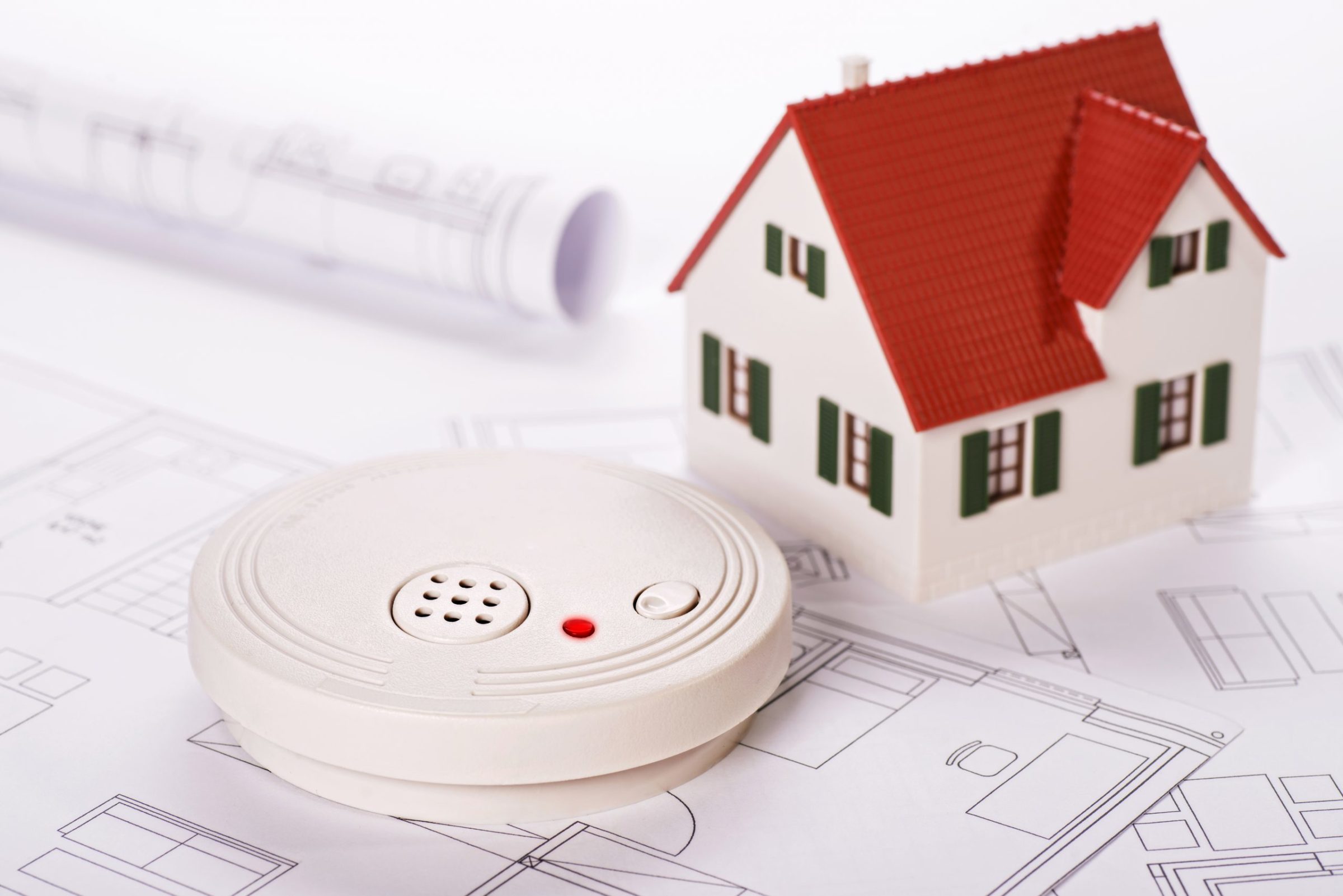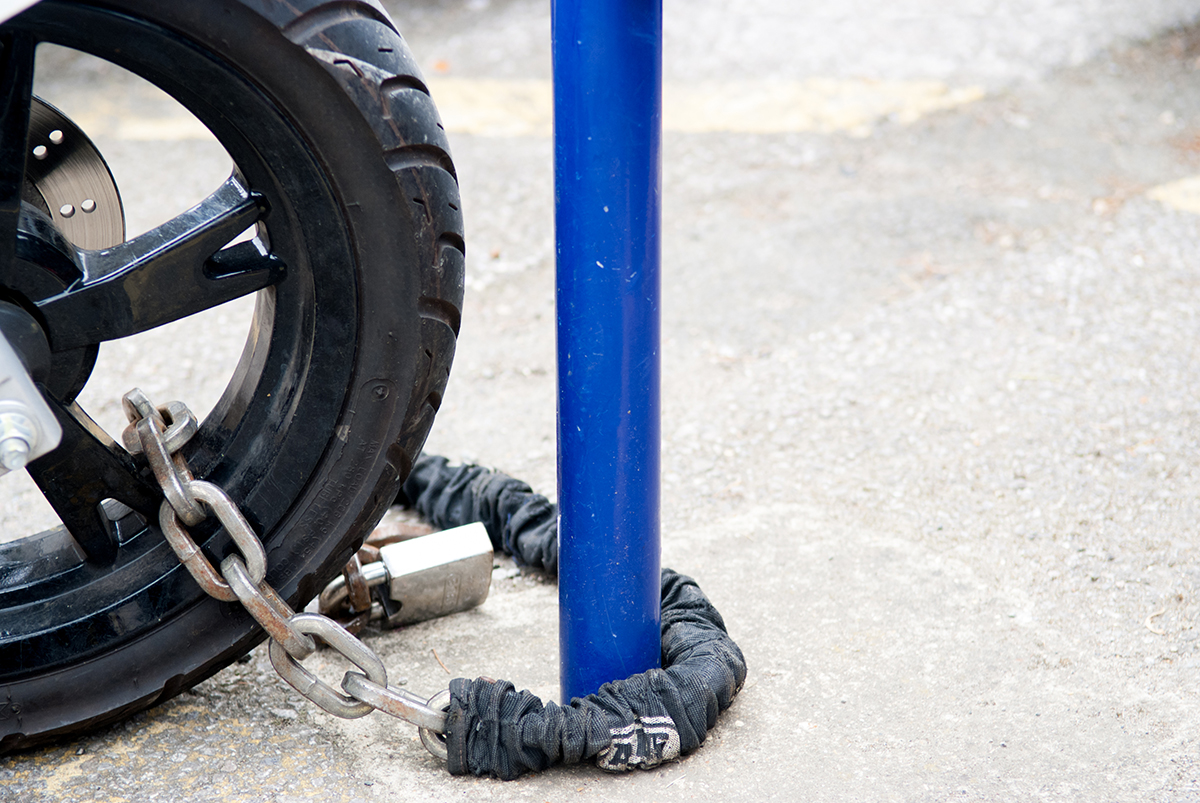As we dive into the month of October, it’s the perfect time to refresh your knowledge of fire safety and prevention. The National Fire Prevention Association (NFPA) promotes Fire Prevention Week in early October each year, with many marking the full 31 days as Fire Prevention Month.
Keep reading as we explore a few key tips for keeping your home safe, creating an emergency plan, and getting your entire family on board with fire-prevention strategies.
Why Fire Safety is Important
First, a little bit of history: did you know Fire Prevention Week first began in the 1920s? Established by President Calvin Coolidge and designed to memorialize the Great Chicago Fire of 1871, the NFPA dedicates the week to providing lifesaving public education about fire safety and prevention.
The Great Chicago Fire killed more than 250 people and burned more than 2,000 acres, so it was a pretty big deal. According to some stories, it started after a cow kicked over a lamp, setting a barn—and then the whole city—on fire. While no one is quite sure of the exact origin, its effects were devastating.
Not too many of us have cows nowadays, but modern-day houses and habits leave us at risk of fires. And even with smoke and fire alarms in place, you may have as little as one to two minutes to escape safely in a typical home. Fortunately, you can keep your family safe with careful planning and the fire-prevention tips below.
1. Check All Alarms and Detectors Regularly
Installing smoke and carbon monoxide alarms throughout your home is your first line of defense. The NFPA recommends installing one in every bedroom, outside of each sleeping area, and on every level of the home. For levels without bedrooms, add a smoke alarm to the living area and at the top and/or bottom of the stairways. Large homes may need additional alarms. Get a fire extinguisher for each level, also, especially in the kitchen and garage.
Of course, this isn’t just a set-it-and-forget-it installation. You’ll need to test the alarm batteries every six months and replace your alarms at least every 10 years. Many families use the bi-annual Daylight Savings time change as their reminder to test alarms. Find a schedule and routine that works for you and stick to it.
2. Create an Emergency Plan
Here’s a scary stat: according to First Alert, less than 50% of homeowners have an escape plan. Are you one of them?
Creating (and practicing) an escape plan can make a huge difference if an emergency strikes, and it doesn’t take long to craft. To do so, grab everyone in your household and do a walk-through of your home. Point out the possible exits and escape routes in each room; you can also draw out the floor plan and mark the exits.
Ideally, you should note two ways to get out of each room, just in case the primary route is blocked by fire or smoke. Lastly, assign a meeting spot outside of your home so everyone knows where to go. If you have an app like Rescu, ensure that it’s installed on all family members’ devices, so that anyone in your household can request emergency services. The Rescu app will also notify all of your pre-set emergency contacts so they know what’s happening and who requested the emergency response.
Once you have your notes, review and practice your escape plan at least twice a year. Practicing with your eyes closed is also a good idea, as fire and smoke can make your home extremely dark and disorienting.
3. Get Your Kids on Board
If you have kids, make sure to get them involved with step two, as well as all of the other tips on this list! Fire Prevention Month is a great opportunity to discuss fire safety with your entire family, so everyone feels prepared for emergencies. The NFPA website offers several kid-focused resources you and your kids can check out, including videos, games, and other activities.
4. Learn How to Use Your Fire Extinguisher
Do you know how to use a fire extinguisher? You never know when you might need to use it. Fortunately, there’s an easy anagram to remember: P.A.S.S.
Here’s what it stands for:
- Pull: Pull the pin.
- Aim: Aim the nozzle at the base of the fire.
- Squeeze: Squeeze the lever slowly and evenly.
- Swipe: Swipe the extinguisher from side to side, still aiming at the base, to cover the full area.
5. Stay Safe in the Kitchen
The kitchen is one of the most common areas of the house for fires. Some important tips to stay safe in the kitchen are:
- Stay alert and stay in the kitchen when you’re cooking. Don’t leave anything unattended—not even for a second.
- Unplug appliances (like toasters and coffee makers) when they aren’t in use, and turn off your stove and oven as soon as you’re done cooking.
- Clear the clutter, including oven mitts, towels, and excess food packaging that could be flammable.
6. Practice Fire-Safe Habits Every Day
Fires can happen in every room of the house, so it’s important to establish safe habits at all times. Here are some examples:
- Never leave candles unattended.
- Don’t overload electrical circuits, and keep the areas around them clear.
- Keep clutter (especially flammable items, like paper and clothing) away from heaters and fireplaces.
- If you use electric blankets or space heaters, make sure they have auto shut-off functions.
- Regularly clear out the lint trap in your dryer, and clean the exhaust vents and ducts every year.
7. Keep Valuable Documents Safe
Make sure you have digital copies of all valuable documents and records, including birth certifications, wills, trusts, and life insurance policies. If you’re not tech-savvy, you can rent a safe deposit box at a bank, or invest in a fire-resistant safe inside your home. Either way, you’ll want to keep everything safe and protected.
8. Be Ready to Call For Help
Time is of the essence when an emergency strikes. Fires, especially, can spread quickly. Be prepared by keeping your phone near your bed, and be ready to call 9-1-1 at all times.
Get Help in Just Two Taps With the Rescu App
If you want to be even more prepared, the Rescu app is here for you. It’s the fastest way to call for emergency help, allowing you to send for fire, police, or EMTs in just two taps. This app is also very beneficial for the deaf community who cannot speak to dispatchers. By pre-registering your address within the app, help can be on the way much quicker. Plus, it will automatically alert your emergency contacts so they can respond appropriately, and will notify the emergency responders of any health conditions that you may have.
Learn more about the life-saving Rescu app, available for iOS and Android!



